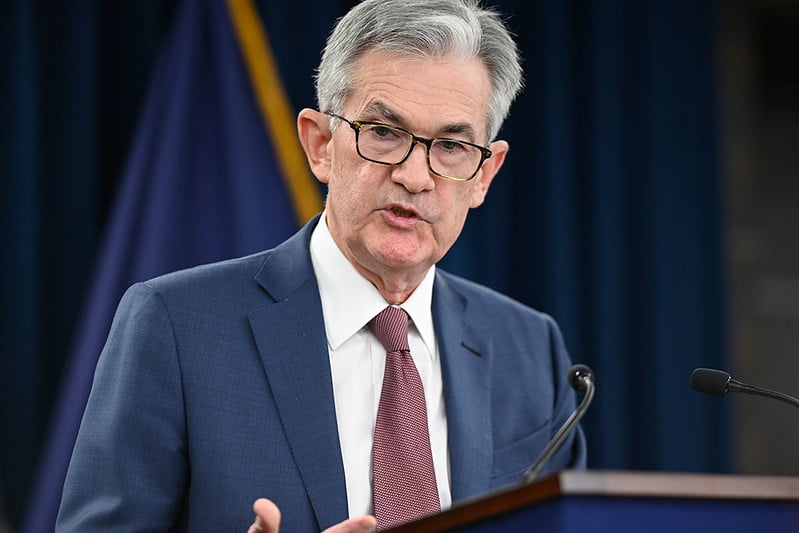With the U.S. Federal Reserve Chairman Jerome Powell set to announce inflation data today, many are on the edge of their seats anticipating what may be an interest rate hike coming soon. While vested interests prefer to paint a rosy picture for perpetuating a crazy market, Christiaan Hetzer at Forbes and many others reveal that the real estate bubble and inflation are just an American trend, but a global problem. But, the question on everyone's mind today is, "Will interest rates go up?" As much as every potential homeowner would like to dream, the answer seems obvious.

Worldwide, housing prices are on fire and going higher at rates not seen in the last 15 years. The author points to worldwide government stimulus packages and fiscal policies padding personal incomes. He also cites a recent study showing that prices in 56 countries and territories increased 7.3% until March 2021. The same survey showed that United States prices increased by 13.2% during the quarter, which is the highest price growth since December 2005.
However, the elephant in the market analysis room is the danger of inflation. China, New Zealand, and Ireland have already instituted measures to protect against inflation, and upcoming meetings at the Fed and the European Central Bank will likely reveal stopgap actions as well. The effects are already being seen in data showing core consumer inflation, excluding food and energy, is expected to jump 3.5% for May, the highest level since 1993. If the Fed finds that this trend is chronic rather than acute, they will certainly raise interest rates and take other measures to curtail the problem.
Some analysts expect inflation to reach 4.9% year-over-year, but these same experts believe the Fed will take other measures before elevating interest rates. But 10-year Treasury yields are down of late, and key executives like Bleakley Advisory Group chief investment officer Peter Boockvar are fearful that 1970s-style long-term inflation will result because of stagnated higher prices brought about via housing-related inflation. He spoke recently with CNBC on the subject:
“We are at a point where meager interest rates are no longer stimulative to the housing market. On the purchase side, we know the dearth of inventories and sticker-shock price increases are slowing the pace of transactions.”
A key concern of market analysts is the effect longer-term inflation will have on investor portfolios. Goldman Sachs Chief U.S. Equity Strategist David Kostin is here discussing how the U.S. equity market real return during high inflation backdrops is historically annualized 9% vs. 15% during periods of low inflation. Another hidden danger is the chasm created by varied coronavirus pandemic recoveries. Some countries (markets) see a blistering recovery on account of vaccine rollouts, while others lag far behind. This recovery, so far, is on pace to beat the economic windfall at the end of World War 2.
Global Economic Prospects says 94 percent of high-income countries will regain pre-recession gross domestic product within two years. However, the rate for emerging countries is less than half that. These low-income countries are already in extreme debt distress. The U.S., the UK, and others are already cutting back aid to many of these countries to pad their war chests. This is going to be catastrophic where food insecurity and other global problems are concerned. I mention this facet because these effects will also bring additional pressures to the global and local economies. For instance, some fear that if the Federal Reserve is slow to act this time around, the so-called Paul Volcker effect (late 70s drastic measures) needed to get prices back under control would trigger a global catastrophe.
Few people consider that factory prices in China discussed here dramatically affect businesses and households in the United States. Employment in the U.S. is now approaching all-time highs. Real estate and its associated industries are in “crazy mode,” taking advantage of the bubble and reacting to the downside. And very few people are talking about what happens if the plug is pulled. Jeff Sommer at the New York Times did well in this report to remind us of 17 percent home interest rates, cost of living nightmares, and long-term systemic problems that could ensue.
So, the significant wisdom suggests the Fed will be forced to increase interest rates now. I agree with this and expect the announcement later today along these lines. As reasoning, pay attention to The Wharton School’s Itay Goldstein on the subject here. I’ll leave you with something from investing legend Jeremy Grantham. The co-founder of one of the world’s most significant investment funds said recently there would be a “day of reckoning” for this global housing bubble. For the record, Grantham is one of the few big-time investors who predicted the crash in 2008-2009.
Finally, at the end of the day, the immense majority of “experts” say inflation is short-term and that the housing bubble can go on and on and have vested interests in selling houses. Sorry, it has to be said. Ask a real estate agent about a collapsing market. What will you hear? Well, physics is against almost all those people. The Federal Reserve has to elevate interest rates just a little.